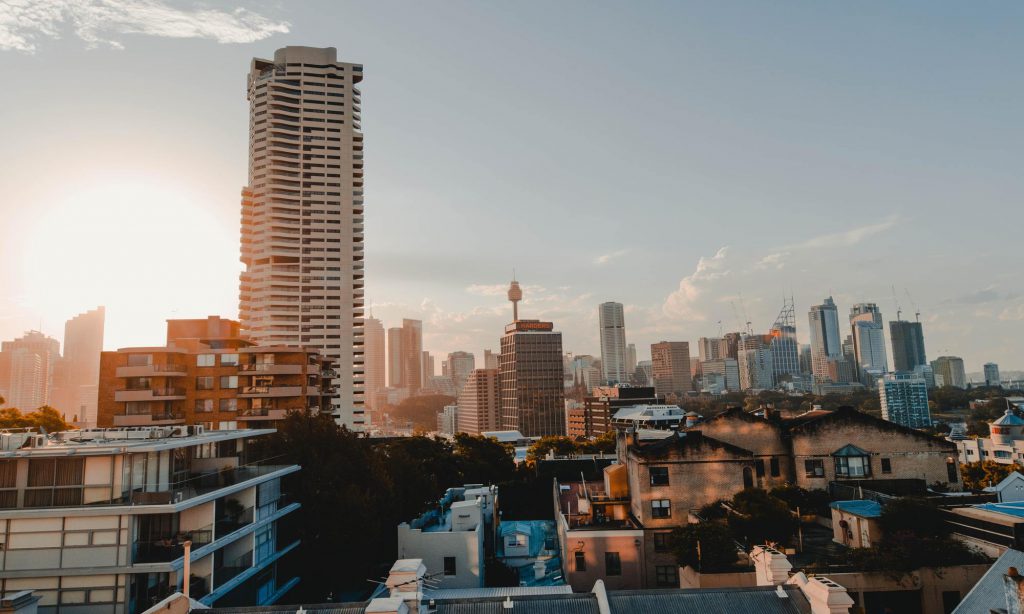Since Australian citizenship was first introduced in 1949, more than 5 million people have become Australian citizens. The popularity of Australian citizenship is showing no signs of decline, with 137,750 people from 190 different countries becoming Australian citizens during the 2016-17 fiscal year.
Even permanent residency (having a permanent residence permit) gives immigrants the right to enjoy the benefits of Australia: a prosperous democratic society, excellent ecology, natural beauty, and a peaceful lifestyle are available to everyone. Permanent residence residents also receive free medical care through the Medicare system – so why apply for citizenship?
Below we have provided seven, in our opinion, the most compelling reasons:

1. TRAVEL WITHOUT BORDERS
Having an Australian passport opens up the possibility of entering 157 states without a visa. And this puts it in 8th place in the ranking of the best passports for travelers.
Most Europeans, as well as residents of Singapore, North Korea, America, Canada, and Japan, visit even more countries in the world without a visa. (The maximum number of open borders in Singapore is 164 countries.) But how tiny Singapore can compare with the vastness of Australia!
2. HELP OF THE MID ABROAD
Australian citizens in distress overseas are eligible for full consular support from the overseas Australian diplomatic mission. Each case is unique and assistance will depend on the circumstances and the availability of consular resources. Usually, the mission is located at the local Australian Embassy
3. TRANSFER OF AUSTRALIAN CITIZENSHIP TO CHILDREN.
Every child born in Australia will automatically become an Australian citizen by birth. Every child who is born overseas to parents with Australian citizenship can obtain Australian citizenship “by descent” at any Australian diplomatic mission. Upon registration, this child will automatically receive all the benefits of Australian citizenship.
4. LOW INTERESTING LOAN FOR TRAINING
Permanent residence residents enter universities on a common basis with citizens and pay much less tuition than foreigners (who do not have a residence permit). But only Australian citizens have access to the HELP Higher Education Loan Program. This government program is aimed at issuing a student loan, which a graduate begins to repay only when his income exceeds about 48 thousand dollars a year. The loan is repaid through taxation. Often the amount of the payment is collected by the employer before the salary is paid in hand (but this is optional). By the way, the HELP loan has almost no age restrictions.
5. UNLIMITED STAY IN THE COUNTRY
Residents living based on permanent residence (permanent residence) can stay in Australia without a time limit. But to leave the country every 5 years, you have to apply for a return resident visa. Also, in the event of a crime or other misconduct that casts a shadow on the mandatory requirement of a “generally good character” of a resident, officials have the authority to revoke the residence permit and deport it from the country.
6. WORK IN THE AUSTRALIAN ARMED FORCES AND THE PUBLIC SERVICE
Another benefit of Australian citizenship is the increased employment offered by the Australian Armed Forces and Civil Service. For example, you can work for government agencies or apply for a job with an Australian citizen-only clearance. While most public sector jobs are available to residency holders, only Australian passport holders can serve in the Armed Forces. The same applies to government departments – the Ministry of Foreign Affairs or the Border Control Service. Although you will be accepted into the fire department without citizenship.
7. RIGHT TO VOTE IN ELECTIONS AND TO BE ELECTED
Australian citizens have the right to vote in federal, national, or territorial elections and referendums. Voting in Australia is compulsory. If you do not come to the polls and you do not have a good reason for this, you will have to pay a fine.
Also, as an Australian citizen, you can run for parliamentary elections and receive the honorary right to serve the people as a member of the Australian parliament or even as prime minister (though you will then have to give up your original citizenship)
What documents are needed to obtain citizenship in Australia
Each applicant for Australian citizenship must prepare the following documents:
- General and foreign passports;
- The conclusion from a medical institution on the absence of dangerous diseases (it is necessary to undergo a medical examination);
- Certificate from the Ministry of Internal Affairs about the absence of a criminal record and criminal prosecution;
- Completed application for citizenship;
- Birth certificates (certificates) of children;
- Completed declaration of entry to Australia;
- Form 1300t, for applicants under 16 or over 60 years of age, Form 1290 is required.
The package of documents is supplemented by other papers, depending on the basis for obtaining citizenship. Every document issued outside Australia must be translated into English and the translation must be notarized.
Documentation is accepted not only in paper form but also in electronic form when the immigrant is directly in the country. They are forwarded to the Australian Department of Immigration and Citizenship. Besides, it is possible to send documents by mail or using any courier delivery service.
Who can get Australian citizenship
- Individuals who are subject to the following requirements can apply for Australian citizenship:
- Age – over 18 years old, for minors, the application is submitted by parents or guardians;
- Having a permanent visa, that is, permanent residence in Australia for 4 years;
- Compliance with the criterion of settledness, when it is allowed to stay outside the country no more than 90 days a year;
- The intention to live permanently in Australia and the provision of relevant evidence;
- No problems with the law.
Passing the procedure for obtaining citizenship, including testing and interviews. Depending on the basis for becoming citizens, the requirements for the applicant may vary.
